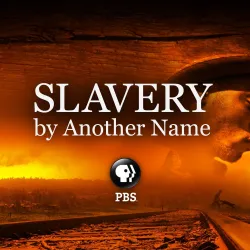
The film and discussion at 3 p.m. Wednesday, Feb. 24, will focus on when African American men, “often guilty of no crime at all, were arrested, compelled to work without pay, repeatedly bought and sold, and coerced to do the bidding of masters … well into the 20th century.”
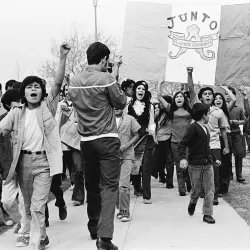
The presentation, “Set the Night on Fire: L.A. in the Sixties,” which takes its title from the book by guest speakers Mike Davis and Jon Wiener, will be livestreamed on Zoom beginning at 3 p.m. Wednesday, Feb. 17.
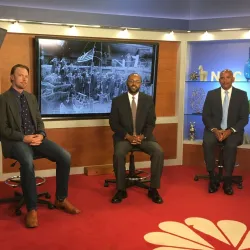
As part of our celebration of Black History Month, take a look back when Zachary Powell (criminal justice), Marc Robinson (history) and Rafik Mohamed (dean, College of Social and Behavioral Sciences) were interviewed for the three-part series on the history of policing Black communities.
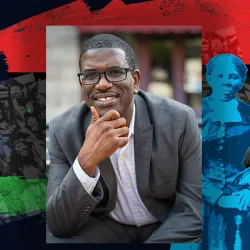
At a time when race relations are highly charged in the United States, Daniel E. Walker’s presentation is timely. The program is set for noon, Tuesday, Feb. 9, on Zoom, and is co-sponsored by the University Diversity Committee’s Conversations on Diversity Series and the Programming Subcommittee of the President’s Diversity, Equity and Inclusion Board.
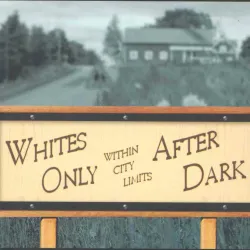
The history of communities where people of color were essentially excluded will be the topic of the next Conversations on Race and Policing, set for 4 p.m. Wednesday, Dec. 9.
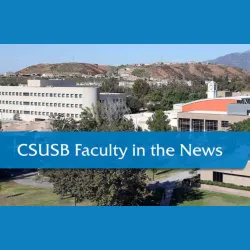
Diane Vines (nursing) discussed a grant received by the Street Medicine program at CSUSB’s Palm Desert Campus, and Brian Levin (criminal justice) appeared on MSNBC’s “PoliticsNation” to discuss the latest FBI hate crime report.
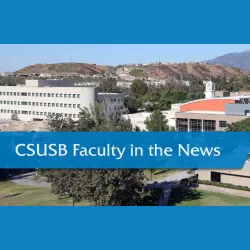
David Yaghoubian (history) discussed the possibility of the U.S. re-entering the multi-national agreement regulating Iran's nuclear program, and Brian Levin (criminal justice) was quoted about the latest FBI hate crime report.
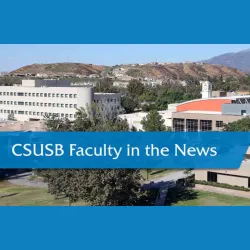
Tamara Cedré (art and design) participated in a panel about the state of photography education, and Brian Levin (criminal justice) discussed the implications of last weekend’s “Million MAGA March” in Washington, D.C.
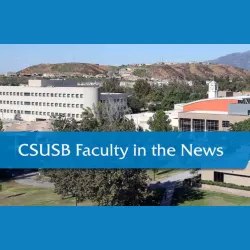
Brian Levin (criminal justice) was interviewed for an article looking back at the Mother Emanuel AME Church tragedy, as well as numerous articles reporting on the potential for election-related unrest and violence.